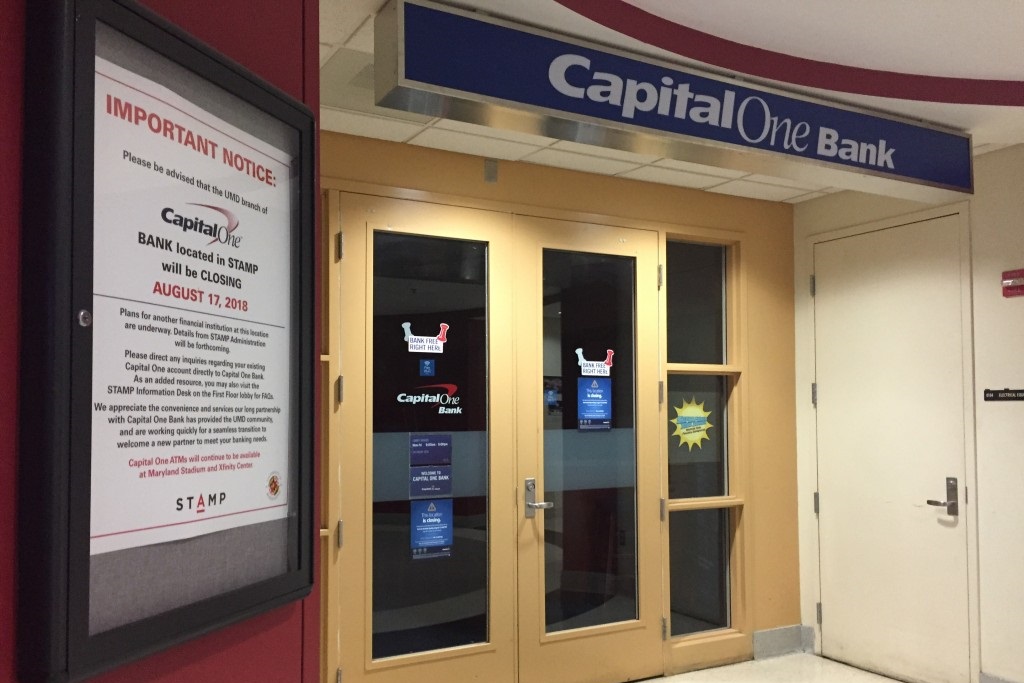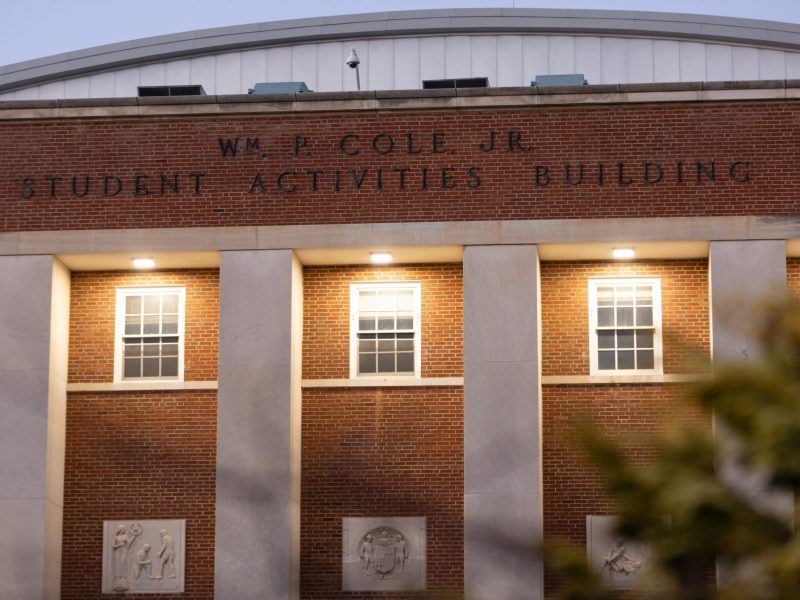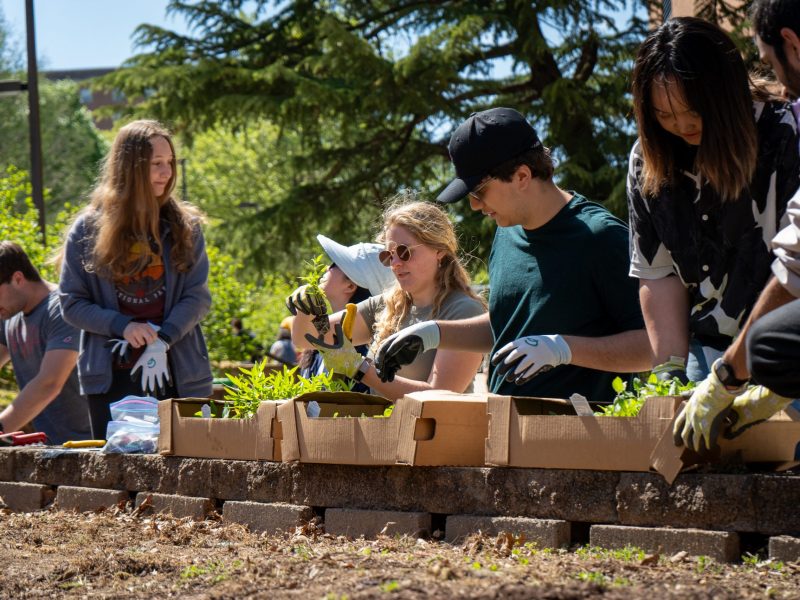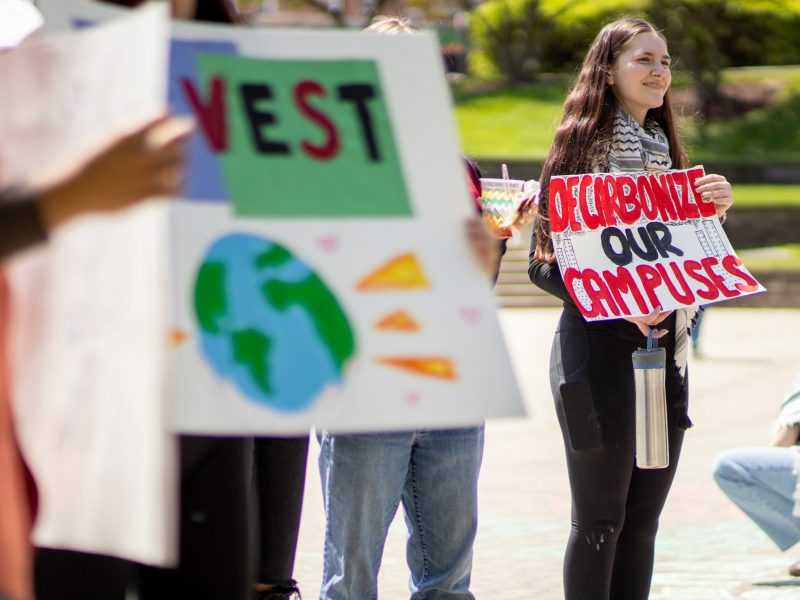The University of Maryland’s branch of Capital One Bank will close in August because it stopped some offering services the university requires, such as safe deposit boxes and foreign currency exchange.
The branch’s last day of operation will be Aug. 17, said Capital One spokesperson Amanda Landers.
The branch has been operating in Stamp Student Union for more than four years. The next closest branches are located at Beltway Plaza Mall in Greenbelt and the Mall at Prince George’s in Hyattsville, both about two miles from this campus.
This university entered into contract negotiations with the bank in the fall of 2013 and reached a five-year agreement that is set to expire rather than be renewed, said Stamp director Marsha Guenzler-Stevens.
“As we were in that process of going through that negotiation to see if the bank wanted to continue for a second five years, it became obvious that the bank was changing its offerings and wasn’t as interested in the requirements that we had for the providers here,” she said.
[Read more: Capital One will donate $3.1 million to UMD for comp sci research and lab space]
Stamp is currently accepting proposals for a new bank, Guenzler-Stevens added, which will be chosen by late summer or early fall.
When considering a campus banking partner, this university looks for establishments that offer services tailored to a university community, Guenzler-Stevens said. This includes free checking, resources for student organizations, support for safety deposit boxes and domestic and international money transfers and staff that can “work with students who may be first-time bankers,” she said.
Landers wrote in an email that Capital One “takes the decision to close a branch seriously” and that the company notified customers in May of the upcoming closing. She confirmed that Capital One no longer offers some of the services requested by the university.
“We encourage our customers to give us a call or stop by before the branch closes to ask any questions and let us show them the available options,” she added.
[Read more: A potential new entrance to Stamp Student Union could boost the building’s accessibility]
Capital One’s relationship with this university has existed for more than 20 years, Landers said. In December, the company announced it would donate $3.1 million for research and development in data analytics, machine learning and other fields.
The end of the banking contract does not affect Capital One’s other partnerships with this university or its naming rights to Maryland Stadium’s football field, Guenzler-Stevens said.
She added that due to the changing nature of the banking industry, the closing shouldn’t pose a major inconvenience for campus customers.
“People don’t go to banks — they do everything electronically,” she said. “Being able to access online [and] being able to access an ATM probably will be able to satisfy, I don’t know, 90 percent of people’s banking needs.”
But Deshvir Malik, a computer engineering graduate student who said he’s visited the bank regularly, said the closing will have a negative impact on his campus life.
“This was so convenient for me — I could use it just after my class,” he said. “I don’t have any car, so I need to commute by bus or by cab.”
Malik added that timing visits to an off-campus branch could be a difficult task for a busy student.
Guenzler-Stevens said students like Malik could consider transferring their accounts.
“If what they did was really choose a bank because of the convenience of having it physically present here,” she said, “then they may want to think about whether they remain with Capital One or whether they go with the new banking option in [Stamp].”
Arya Hodjat contributed to this report.



